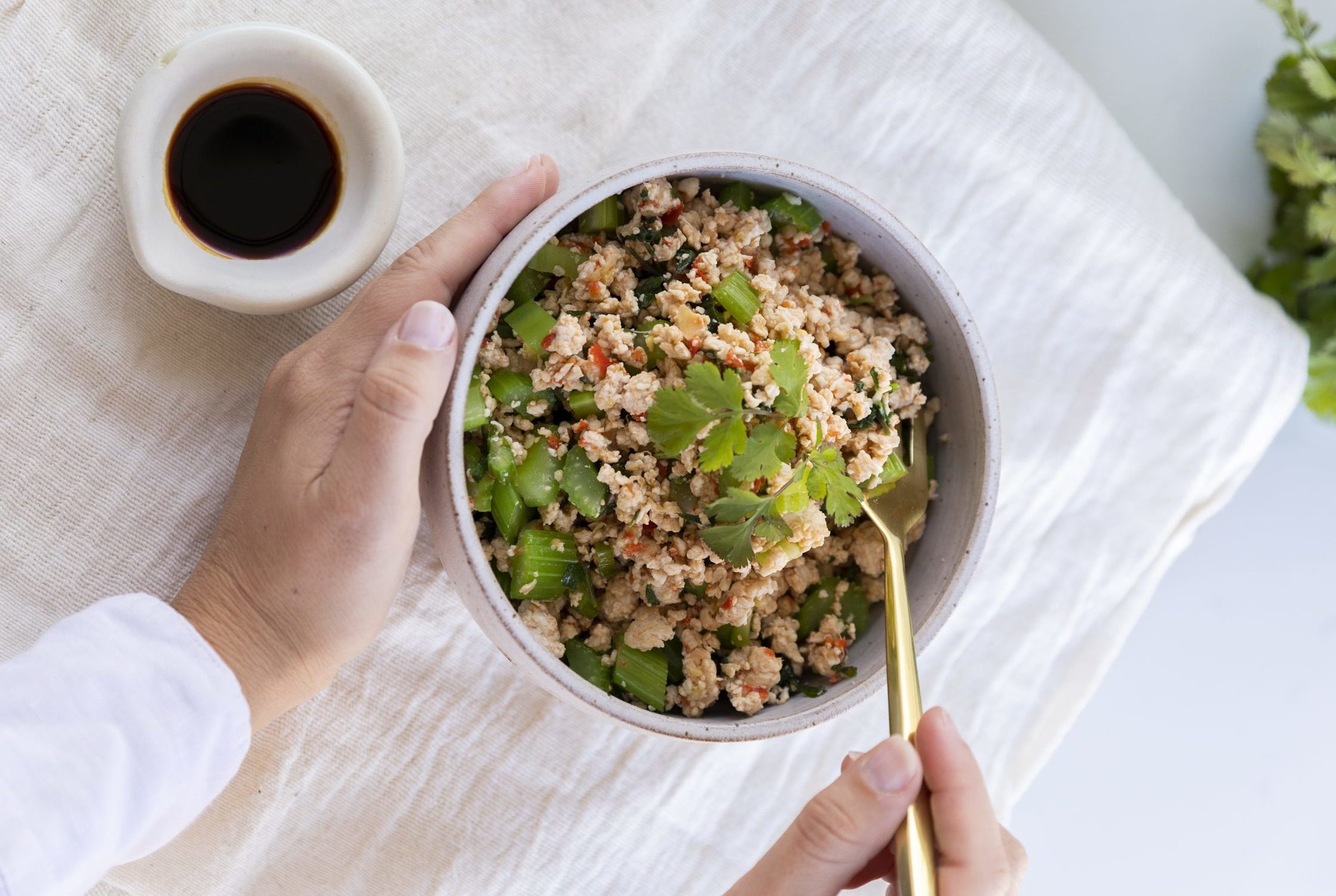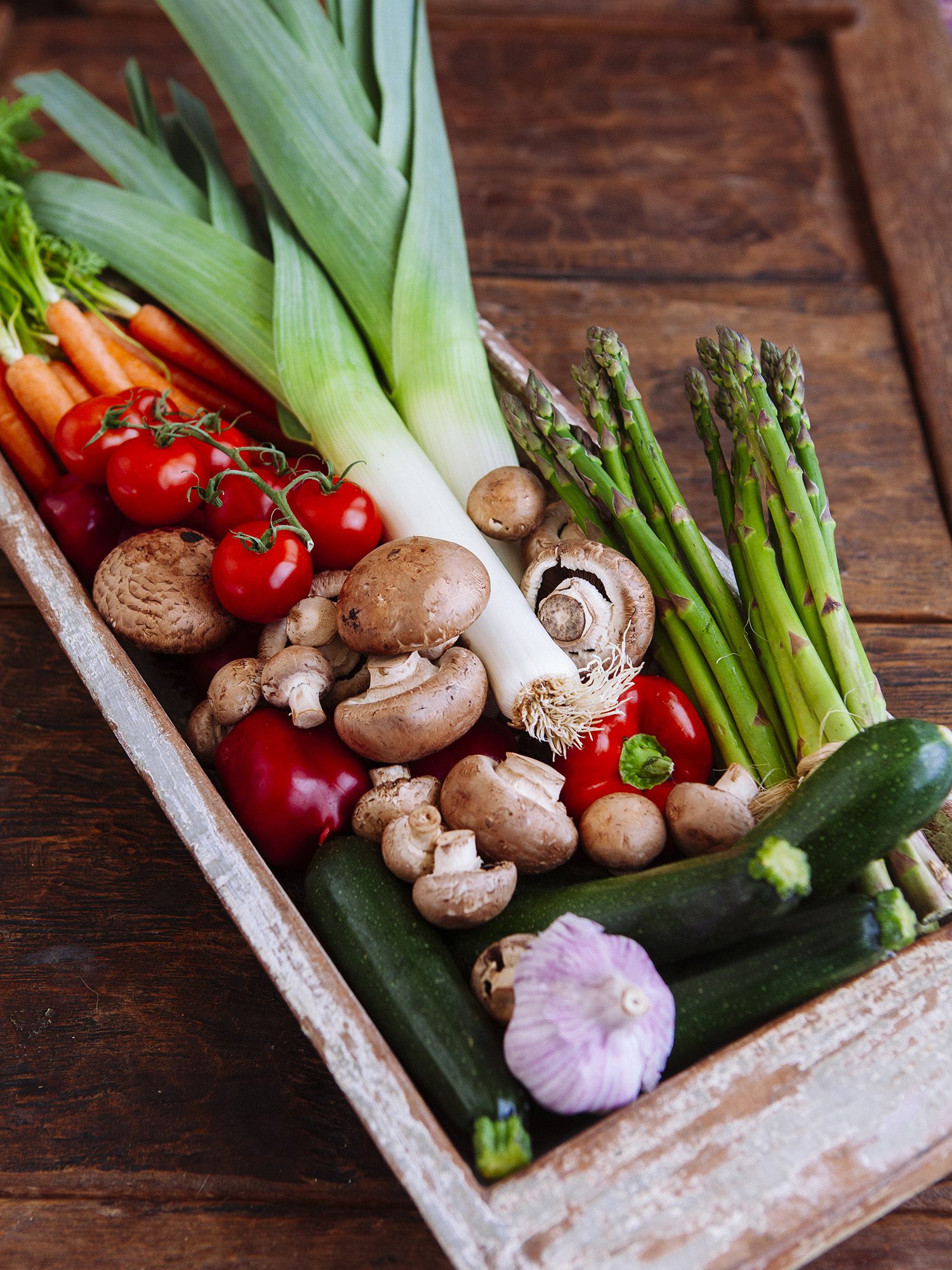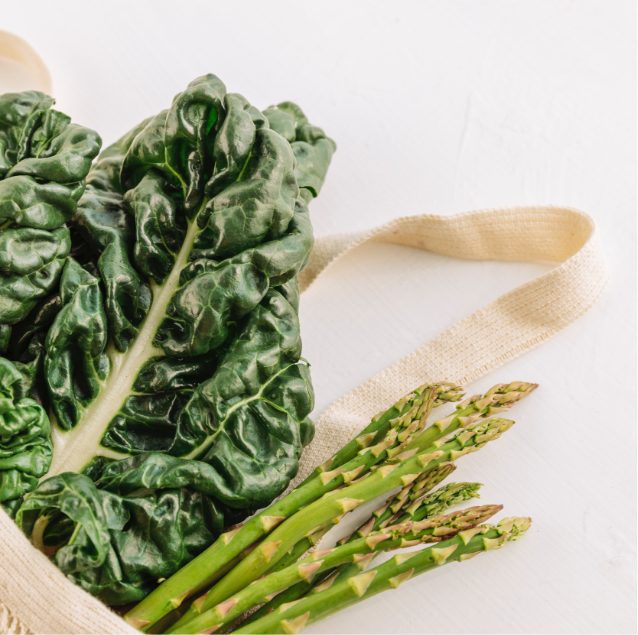Have you ever done that thing where you walk into a room with strong intention only to forget your intention as soon as you get there? Or you’re reading something and suddenly realise your thoughts have drifted off and you need to start again? What about that time you completely forgot your neighbour’s name right at the exact moment you needed to introduce them to someone?
Brain fog happens to the best of us. If it feels like you’re losing your mind, you’re not alone.
Menopausal brain fog is a real thing, with this symptom being the most highly reported menopausal symptom after hot flashes and sleep issues. Often described as a ‘cotton-wool’ feeling, brain fog makes it difficult to absorb and recall information or concentrate on simple tasks. The good news is there is a reason for these short-term cognitive blips, and there are some easy dietary fixes that can boost brain power and bring the focus back.
What Causes Menopausal Brain Fog?
Cognitive function is hormonally driven (aren’t we all?!), with hormones oestrogen, progesterone, follicle-stimulating hormone (FSH), and luteinising hormone (LH) playing major roles in cognition. According to studies, it’s the fluctuating levels of these hormones during perimenopause that are responsible for brain fog.
What Can We Eat To Bring The Brain Back?
“Cultivating healthy neural pathways is the key to nurturing clarity of brain function,” says Sam Gowing, Xali resident nutritionist. “The food we eat directly affects our upstairs brain’s performance – just as long as we feed the garden of our second brain, our digestion and gut health.
“Neurotransmitters are found in the food we eat, hence why some foods are called ‘brain foods’. These foods soothe the nervous system, and include acetylcholine (found in egg yolks, peanuts, meat, fish, dairy and most vegetables), dopamine (all proteins – meat, milk products, fish, beans, nuts, soy products), and serotonin (carbohydrate-based – think starchy vegetables, potatoes, and cereals).”
There are plenty of small nutrition tweaks that may help clear brain fog symptoms, boost energy, and increase productivity. The key is keeping your brain well-fed, nourished, and oxygenated with the right foods.
Eat Your Veggies (Especially The Leafy Greens)
Kale – it’s your time to shine! Well actually, you and all your green leafy cousins. Leafy greens – kale, spinach, chard, and silverbeet to name a few – contain high levels of vitamin C and even some iron, they can help fight fatigue caused by an iron deficiency, a common cause of tiredness. Also, leafy greens contain nitrates, which improve blood flow throughout the body. This not only benefits the brain but helps keep you awake.
Many of the dark leafies are also high in lutein, an antioxidant that protects the brain from free radical damage and inflammation. People with mild cognitive impairment have been shown to have reduced lutein status and boosting lutein levels has been shown to enhance learning and memory.
Try this: Sauteed silverbeet with celery and toasted pine nuts
Here, Fatty Fishy Fishy
Essential for good brain health, omega-3 fatty acids, docosahexaenoic acid, or DHA, in particular, have been shown to help improve memory. Fatty fish such as salmon, mackerel, sardines, and tuna are rich in omega-3 fats, which many studies have linked to a reduction in age-related cognitive decline, protection against Alzheimer’s, and general improvement in cognition and mood. For vegetarians, tempeh, chia seeds, and brussels sprouts are in for the win.
Try this: Pan-seared tuna with Asian slaw and Naz’s Sesame Dressinghttps://app.xali.com.au/eat/view/197
Work In Walnuts
If you’ve ever wanted to take the old adage ‘you are what you eat’ literally, walnuts and brain function are your go-to! Not only do these tasty morsels look like little brains, but they also contain the highest amounts of alpha-linolenic acid, a plant-based omega-3 fatty acid and polyphenolic compounds than any other food. These compounds are considered critical brain foods, counteracting oxidative stress and inflammation, two drivers of cognitive decline. So, in a nutshell (sorry) eat more walnuts!
Try this: Crunchy wombok and nut salad rocket and walnut pesto
‘Ave an Avocado
Whether you prefer it straight off the skin, as ice cream, or smashed with fetta cheese, avocado is rich in vitamin E and monounsaturated fats, which not only keep you sustained for most of the day, but also help improve the absorption of fat-soluble vitamins from foods such as spinach, kale and other leafy greens. They’re also high in magnesium and potassium which help improve blood flow – better blood flow means a healthier brain.
Try this: Iceberg lettuce with miso avocado dressing
Get Sweet On Berries
Almost all berries are loaded to their plump, juicy skins with flavonoids and antioxidants. They scavenge harmful toxic cellular waste in the body called free radicals. Free radicals damage brain cells and DNA through a process called oxidation, which contributes to brain fog-related symptoms. Fruits like grapes, pomegranates, strawberries, and blueberries have been shown to improve many aspects of memory and learning, such as rapid and slow memory acquisition, short-term working memory, long-term reference memory, and memory retention and retrieval.
Try this: Flax and chia with nuts, yoghurt, and berries
Gutsy Probiotics
Fun fact: The human body carries over 100 trillion bacteria in the gut. These bacteria work together with the body’s systems and contribute to the synthesis of vitamins and neurotransmitters, and also help with food digestion. Probiotics such as fermented and pickled foods like sauerkraut, kimchi, kombucha and kefir help balance this gut flora between the good bacteria and the not-so-good.
Research has shown that an imbalance in the gut microbiome can lead to a negative effect on learning and memory, mood swings, and may also cause inflammation in the brain. A good swig or three of kombucha each day helps support a happy gut and a clear brain.
Try this: Tamari tofu batons with cashew kimchi
All Hail Chocolate
As if we ever needed an excuse, in addition to being delicious, dark chocolate is packed with antioxidants. Cocoa flavanols, which are the active compounds in cocoa powder, have been shown to increase blood flow to the brain, providing it with an abundant supply of nutrients and oxygen. Make sure you invest wisely in the good stuff though – ditch the milk choco bars, and head straight for the single origin, 70% decadent deliciousness.













